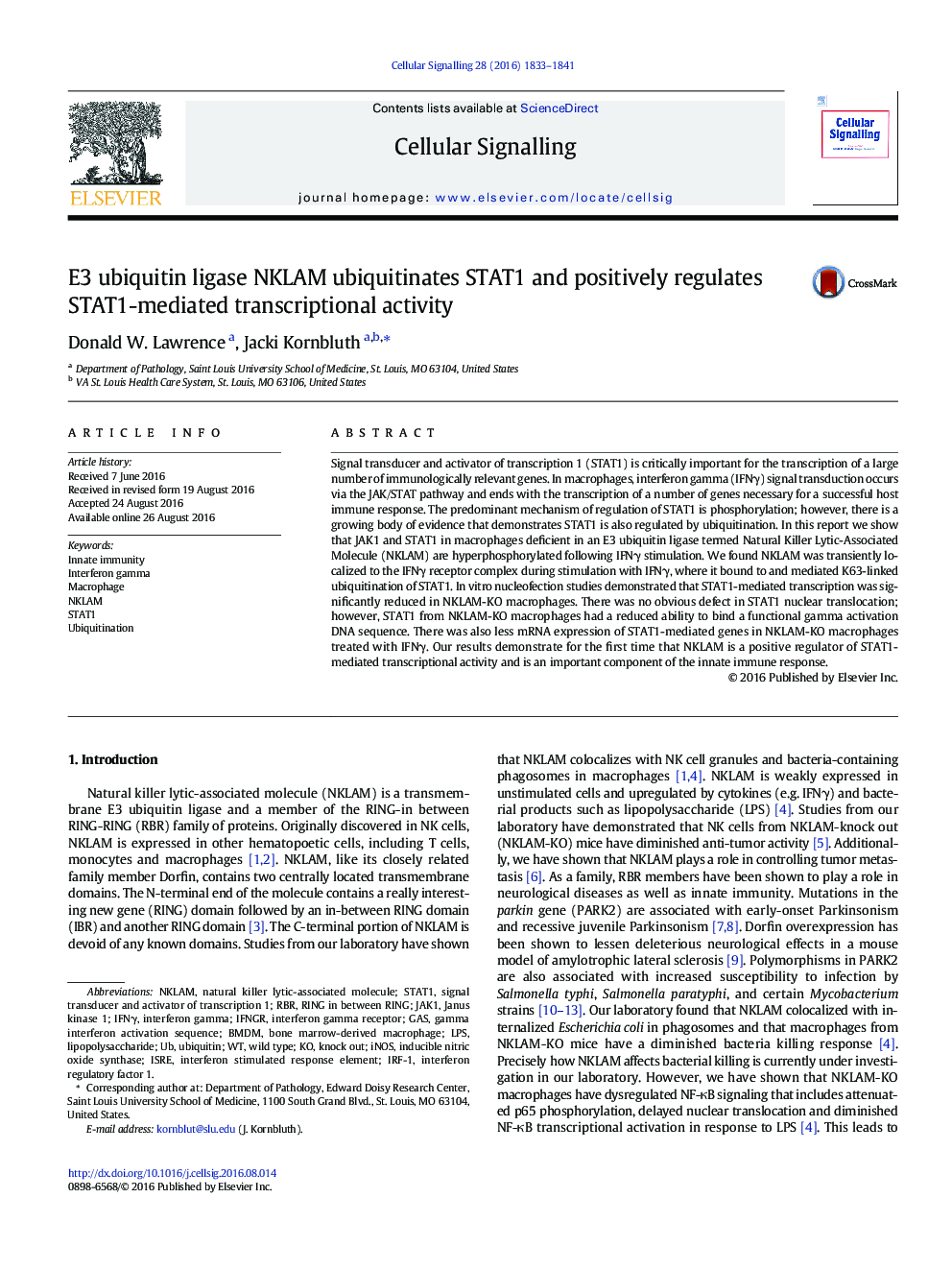| Article ID | Journal | Published Year | Pages | File Type |
|---|---|---|---|---|
| 5509479 | Cellular Signalling | 2016 | 9 Pages |
Abstract
Signal transducer and activator of transcription 1 (STAT1) is critically important for the transcription of a large number of immunologically relevant genes. In macrophages, interferon gamma (IFNγ) signal transduction occurs via the JAK/STAT pathway and ends with the transcription of a number of genes necessary for a successful host immune response. The predominant mechanism of regulation of STAT1 is phosphorylation; however, there is a growing body of evidence that demonstrates STAT1 is also regulated by ubiquitination. In this report we show that JAK1 and STAT1 in macrophages deficient in an E3 ubiquitin ligase termed Natural Killer Lytic-Associated Molecule (NKLAM) are hyperphosphorylated following IFNγ stimulation. We found NKLAM was transiently localized to the IFNγ receptor complex during stimulation with IFNγ, where it bound to and mediated K63-linked ubiquitination of STAT1. In vitro nucleofection studies demonstrated that STAT1-mediated transcription was significantly reduced in NKLAM-KO macrophages. There was no obvious defect in STAT1 nuclear translocation; however, STAT1 from NKLAM-KO macrophages had a reduced ability to bind a functional gamma activation DNA sequence. There was also less mRNA expression of STAT1-mediated genes in NKLAM-KO macrophages treated with IFNγ. Our results demonstrate for the first time that NKLAM is a positive regulator of STAT1-mediated transcriptional activity and is an important component of the innate immune response.
Keywords
RBRLPSIRF-1Janus kinase 1JAK1iNOSIFNGRISREBMDMIFNγStat1Innate immunityinterferon stimulated response elementinducible nitric oxide synthaseInterferon regulatory factor 1lipopolysaccharideMacrophagebone marrow-derived macrophagesignal transducer and activator of transcription 1knock outwild typeGasInterferon gammaInterferon gamma receptorubiquitinationUbiquitin
Related Topics
Life Sciences
Biochemistry, Genetics and Molecular Biology
Biochemistry
Authors
Donald W. Lawrence, Jacki Kornbluth,
